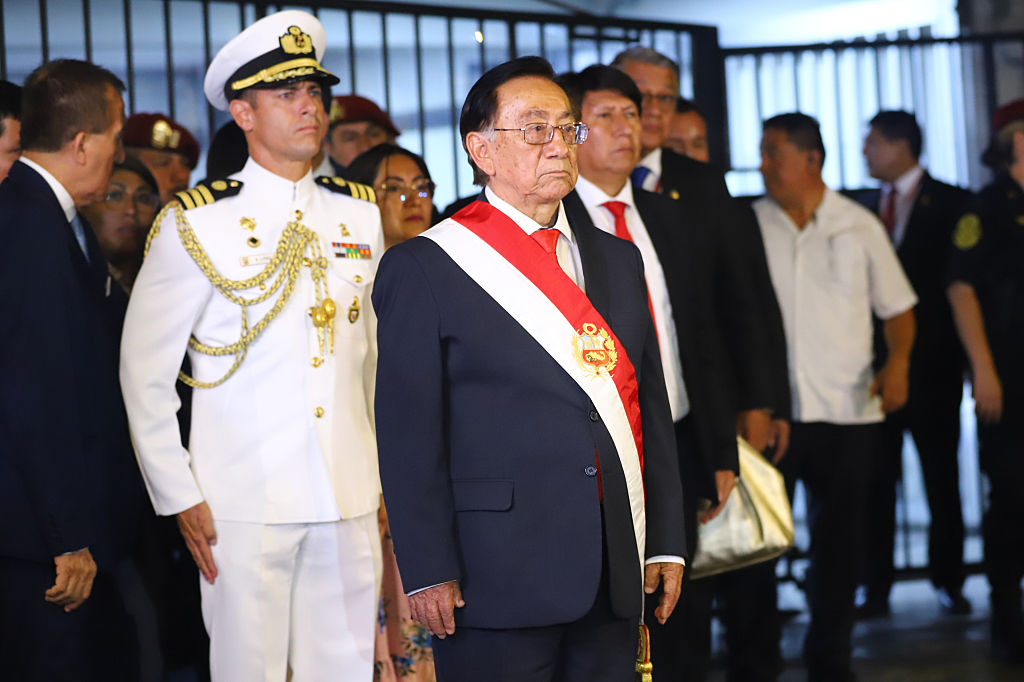Assessing Mexico's Polls as Presidential Campaigning Begins
Assessing Mexico's Polls as Presidential Campaigning Begins
Campaigning officially started in Mexico on March 30. Though the PRI's Enrique Peña Nieto leads, polls vary widely as to how much.
With Mexico’s presidential campaigns officially launching March 30, Enrique Peña Nieto remains the one to beat. Still, the Institutional Revolutionary Party (PRI) candidate’s lead has varied widely over the past few months. Political gaffes involving the candidates play a role in shifting support, but so do inconsistencies in Mexican polling companies. Nevertheless, what the fluctuations in the polls do show is that the race isn’t over; the next 14 weeks before the July 1 election could upset what many consider a done deal.
All polls show that Peña Nieto’s margin over his competitors wavers. Early surveys marked him as the clear favorite, with a January poll showing him beating competitors by a 20-point margin. The entrance into the race of the National Action Party’s (PAN) Josefina Vázquez Mota and the Party of the Democratic Revolution’s (PRD) Andrés Manuel López Obrador (known commonly as AMLO), saw the race tighten. The PAN celebrated a late February poll by GEI ISA—considered the most reliable polling firm in the 2006 presidential election—which showed Vázquez Mota within 7 points of Peña Nieto’s lead. In that poll Vázquez Mota commanded 29 percent of intended votes to Peña Nieto’s 36 percent; AMLO received 17.
However, one month later and on the brink of formal campaigning, polls paint a different picture. An average of five major polls by Mexican political blog Animal Político gives Peña Nieto a lead of 15 points over Vázquez Mota, with 46.8 percent to her 31.8, and 21.4 percent for AMLO. The latest polls from Reforma and Milenio-GEA ISA show similar results, assigning Peña Nieto a lead of between 13 and 16 points over Vázquez Mota.
Why the wide swings in support in the span of one month? One answer could lie in gaffes by the presidential candidates. Peña Nieto experienced a series of embarrassments in late 2011 that dented his popularity. Among these were his inability at a Guadalajara book fair to name three books that influenced him and a subsequent interview revealing he couldn’t name the price of tortillas or the Mexican minimum wage. These missteps invited accusations from his competitors that he is a telegenic intellectual lightweight, or what AMLO called “a meringue” cooked up by Mexico’s broadcasters. However, Vázquez Mota hasn’t escaped unscathed either. Her March 11 inauguration as PAN candidate took place before a half-empty stadium due to logistical errors, raising questions about her ability to mobilize support for the PAN. Furthermore, on March 26 a recording was leaked with Vázquez Mota saying she believes the government is tapping her phone calls. While AMLO’s numbers mostly remained static, some Mexicans remain turned off by his refusal to concede the 2006 presidential election, which he lost to current president Felipe Calderón by less than one percent.
But another explanation for the wide polling results may boil down to the unreliability of the country’s polling firms, as Mexican political scientist Leo Zuckermann writes for Nexos magazine. Evaluating 17 polling firms’ predictions for state governor elections in 2010 and 2011, Zuckermann’s data show that no poll correctly assessed the winner of the state of Sinaloa’s 2010 gubernatorial election, and three out of four got it wrong in the states of Puebla and Michoacan. Similarly, some polls before the 2006 presidential election assigned a two-point victory to AMLO only to see him lose to Calderón. Univison points out that, in the last two elections, the frontrunner in January ended up losing in July. Mexicans are accustomed to such variations. “Accusations of bias and incompetence fly back and forth every time a poll comes up with an unexpected result,” writes The Economist’s Americas View blog.
But if the polls prove unreliable in providing exact numbers, what most do show is that Mexico’s July elections are not a foregone conclusion. Though some polls comfortably give Peña Nieto more than 50 percent of the votes, the latest polls show a sharp increase in the number of undecided voters. A March 26 Grupo Economista Asociados-ISA poll put undecided voters almost equal to Peña Nieto at 32 percent, while a March 28 Milenio-GEA ISA poll put them as the majority, with 34.1 percent. These voters—which the Wilson Center’s Mexican Institute says are mostly comprised of middle-class youth—will be the ones candidates need to win over once campaigning starts tomorrow.
Learn More:
- Visit the Wilson Center’s Mexico Institute Elections page.
- Follow a “poll of polls” for the latest on voter preferences in the Mexican presidential race at ADN Político.
- Read profiles on “the good, the bad, and the absurd” of the major candidates in the 2012 Mexican presidential race by Univision.
- Access the webpages of the three major candidates: Andrés Manuel López Obrador, Enrique Peña Nieto, and Josefina Vázquez Mota.
- Read an analysis of Mexican polling organizations by Leo Zuckermann in Nexos.
- Read about Enrique Peña Nieto’s chances in The Economist.







